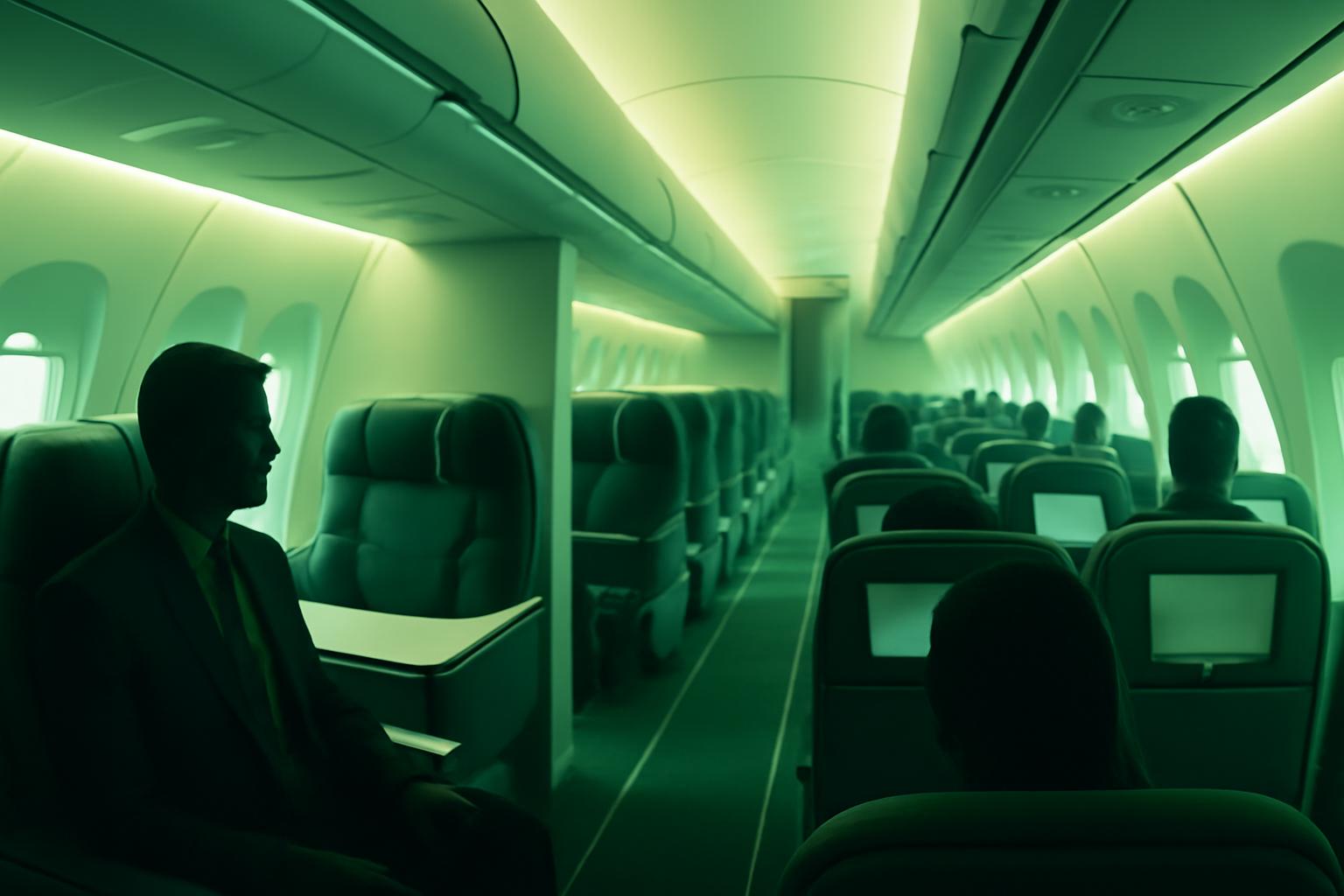Delta Air Lines is witnessing a notable shift in its revenue streams as premium cabin sales edge closer to surpassing traditional coach ticket sales. Executives revealed that revenue from premium seats could exceed that of standard economy cabins for at least one or two quarters in 2026, signaling a significant change in consumer preferences. !-- wp:paragraph --> In the most recent quarter, Delta recorded a 9% increase in premium cabin ticket revenue compared to the previous year, reaching nearly $5.8 billion. Meanwhile, main cabin revenue declined by 4%, totaling just over $6 billion. This trend underscores the growing willingness of passengers to pay a premium for enhanced comfort and services.
Executive Perspective on Sustained Demand
Delta CEO Ed Bastian emphasized the continued strength of premium travel demand, which has been a key factor underpinning the airline’s optimistic forecasts for the remainder of 2025 and into 2026. He noted no indicators of this trend slowing, highlighting its importance to Delta’s financial performance.“We are not seeing any signs that the appetite for premium travel is waning,” said Ed Bastian, Delta’s CEO, during a recent earnings call.Evolution of Delta’s Revenue Mix
Over the past decade, Delta has transformed its revenue composition, reducing reliance on main cabin tickets. In 2010, coach seats accounted for 60% of total revenue; by 2024, this figure is projected to drop to 43%. Concurrently, premium cabin sales and loyalty program earnings now comprise nearly 60% of Delta’s revenue.- 2010: Main cabin revenue approx. 60%
- 2024 projection: Main cabin revenue approx. 43%
- Premium seats and loyalty programs now generate close to 60% of revenue
Industry-Wide Expansion of Premium Offerings
The broader airline industry is responding to growing demand by adding more premium seats to their fleets. These cabins often feature lie-flat beds, ottomans, and expansive entertainment systems, elevating the in-flight experience. However, the complexity and luxury of these designs have occasionally delayed new aircraft deliveries due to regulatory reviews.- Lie-flat beds and enhanced comfort features becoming standard in premium cabins
- Advanced entertainment systems integrated into seat designs
- Regulatory scrutiny causing delays in new aircraft deliveries
Additional Airline Industry Developments
- FAA cites air traffic control shortages as a factor in U.S. flight delays
- Spirit Airlines pursues a $475 million bankruptcy lifeline
- New cockpit alert systems aim to prevent airplane collisions on runways
- Startup Breeze Airways announces plans for international routes
FinOracleAI — Market View
Delta’s shift toward premium cabin dominance marks a pivotal evolution in airline revenue strategy, reflecting changing consumer behavior and a focus on profitability through enhanced passenger experiences. !-- wp:paragraph -->- Opportunities: Increased revenue per passenger, higher profit margins, and stronger brand loyalty through premium services.
- Risks: Potential regulatory delays impacting fleet upgrades, and vulnerability to economic downturns reducing demand for premium travel.
Impact: Positive — Delta’s ability to capitalize on premium travel trends strengthens its competitive positioning and financial outlook, although ongoing market and regulatory risks remain.
Delta’s Premium Travel Revenue Approaches New Milestone
Delta Air Lines is witnessing a notable shift in its revenue streams as premium cabin sales edge closer to surpassing traditional coach ticket sales. Executives revealed that revenue from premium seats could exceed that of standard economy cabins for at least one or two quarters in 2026, signaling a significant change in consumer preferences. !-- wp:paragraph --> In the most recent quarter, Delta recorded a 9% increase in premium cabin ticket revenue compared to the previous year, reaching nearly $5.8 billion. Meanwhile, main cabin revenue declined by 4%, totaling just over $6 billion. This trend underscores the growing willingness of passengers to pay a premium for enhanced comfort and services.Executive Perspective on Sustained Demand
Delta CEO Ed Bastian emphasized the continued strength of premium travel demand, which has been a key factor underpinning the airline’s optimistic forecasts for the remainder of 2025 and into 2026. He noted no indicators of this trend slowing, highlighting its importance to Delta’s financial performance.“We are not seeing any signs that the appetite for premium travel is waning,” said Ed Bastian, Delta’s CEO, during a recent earnings call.Evolution of Delta’s Revenue Mix
Over the past decade, Delta has transformed its revenue composition, reducing reliance on main cabin tickets. In 2010, coach seats accounted for 60% of total revenue; by 2024, this figure is projected to drop to 43%. Concurrently, premium cabin sales and loyalty program earnings now comprise nearly 60% of Delta’s revenue.- 2010: Main cabin revenue approx. 60%
- 2024 projection: Main cabin revenue approx. 43%
- Premium seats and loyalty programs now generate close to 60% of revenue
Industry-Wide Expansion of Premium Offerings
The broader airline industry is responding to growing demand by adding more premium seats to their fleets. These cabins often feature lie-flat beds, ottomans, and expansive entertainment systems, elevating the in-flight experience. However, the complexity and luxury of these designs have occasionally delayed new aircraft deliveries due to regulatory reviews.- Lie-flat beds and enhanced comfort features becoming standard in premium cabins
- Advanced entertainment systems integrated into seat designs
- Regulatory scrutiny causing delays in new aircraft deliveries
Additional Airline Industry Developments
- FAA cites air traffic control shortages as a factor in U.S. flight delays
- Spirit Airlines pursues a $475 million bankruptcy lifeline
- New cockpit alert systems aim to prevent airplane collisions on runways
- Startup Breeze Airways announces plans for international routes
FinOracleAI — Market View
Delta’s shift toward premium cabin dominance marks a pivotal evolution in airline revenue strategy, reflecting changing consumer behavior and a focus on profitability through enhanced passenger experiences. !-- wp:paragraph -->- Opportunities: Increased revenue per passenger, higher profit margins, and stronger brand loyalty through premium services.
- Risks: Potential regulatory delays impacting fleet upgrades, and vulnerability to economic downturns reducing demand for premium travel.
Impact: Positive — Delta’s ability to capitalize on premium travel trends strengthens its competitive positioning and financial outlook, although ongoing market and regulatory risks remain.













